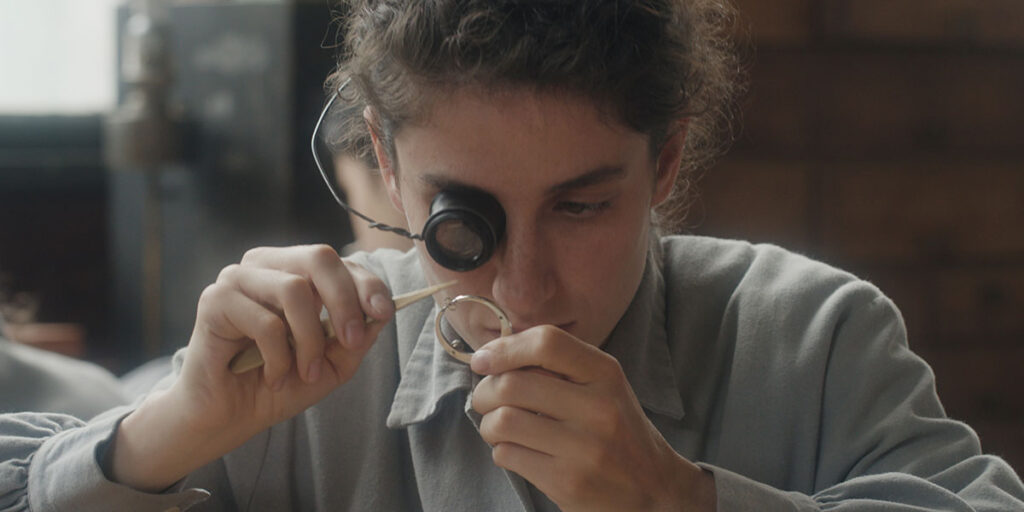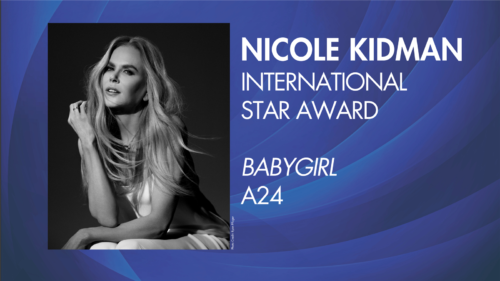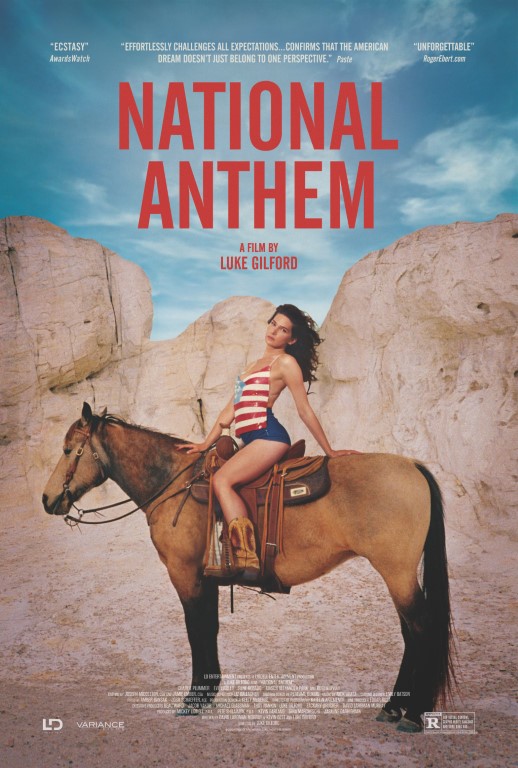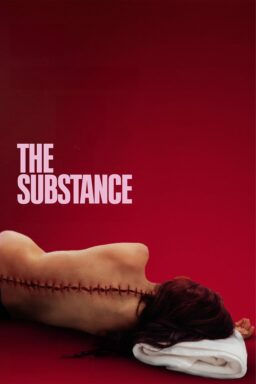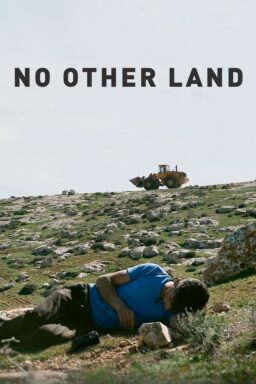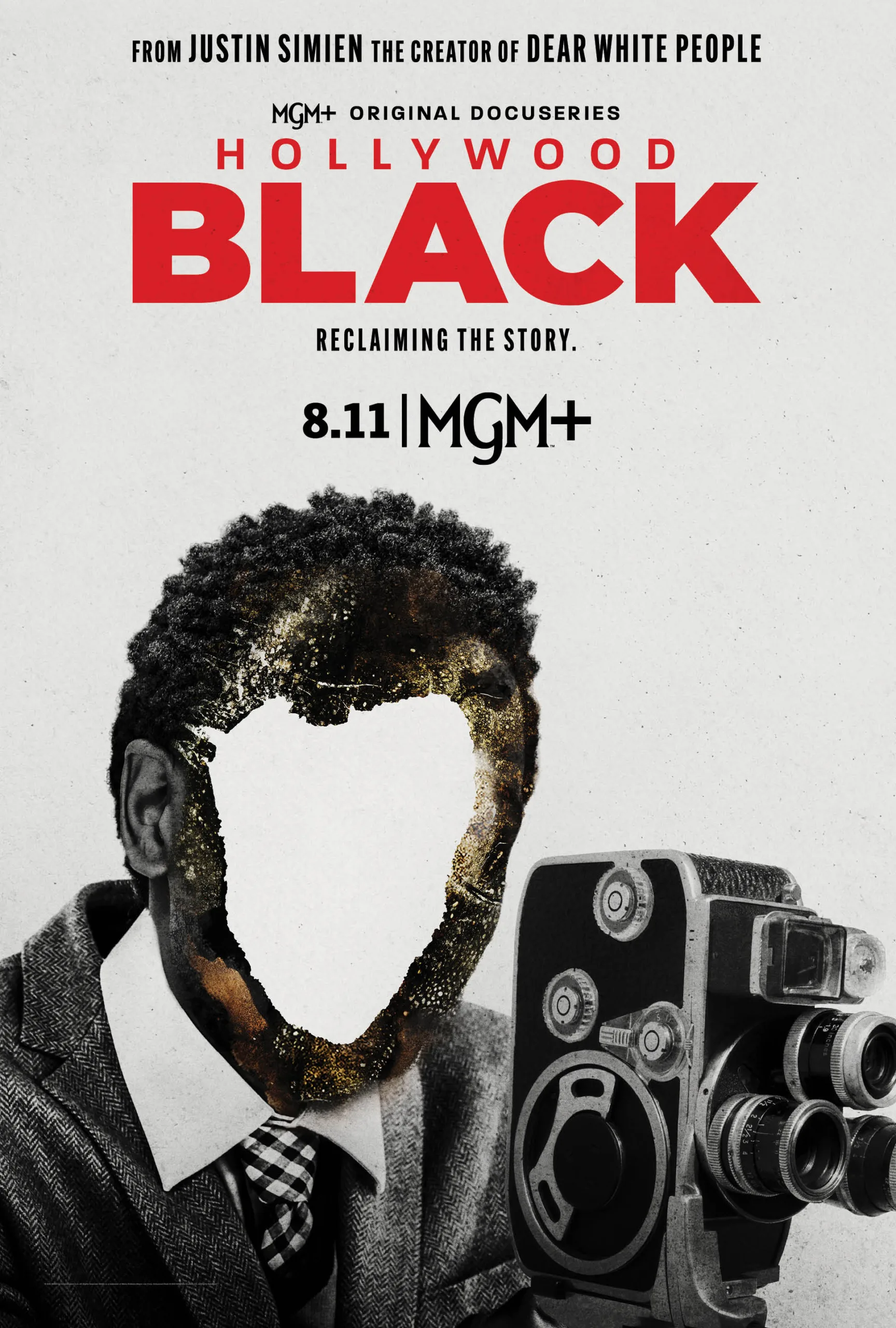Everything seems to tick in "Unrest," the latest effort from Zurich-born writer/director Cyril Schäublin. "Unrest" depicts the working lives of 19th century anarchist watchmakers in the Swiss mountains, laying bare the absurdities of the wage system. Schäublin follows workers as they navigate their working hours across four different time zones in one town—factory time, train station time, municipality time, and church time. It is a fitting theme after his 2017 debut, "Those Who Are Fine," skewered the transactional and atomized nature of capitalist society. His new film blends the persistent whirring of factory machines with the heavy breathing of manual labor, an intentional confusion of internal and imposed rhythm.
Schäublin's approach to filmmaking sheds light on often-ignored subjects. With "Unrest," he shifts the camera ever so slightly to encompass the experiences of women in industrial spaces. But he is rarely didactic with his choices. After he weaves influences from theater, philosophy, history, and science into a complex tapestry, he then turns this broad canvas over to the audience to extract their own thoughts and interpretations. For Schäublin, this intentionality came as a matter of course.
In directing "Unrest," Schäublin encouraged his cast of mostly non-actors to avoid any overly theatrical displays. Wide shots of anarchists fundraising outside of their place of work or gathering to exchange photos of famous revolutionaries encourage the viewer to find their own way through the frame, with naturalistic dialogue only mildly guiding our eyes toward the ostensible subject of any given scene. The result is almost voyeuristic, ironically giving the impression someone somehow managed to set up video cameras in the Jura mountains 150 years ago for our benefit. Yet despite this documentarian appearance, "Unrest" is simultaneously conscious of its inherent bias as a historical drama film. When Schäublin applies his open-ended aesthetic to this problem, he threads the needle on providing a more comprehensive picture of the time period than you might find in a history book without moralizing about his ideas.
"Unrest" is a tale of a struggle between nationalism and anarchism, bosses and workers. It comes at a time of global upheaval, reactionary trends, and labor resurgence. Ahead of its appearance TIFF '22, RogerEbert.com sat down with Schäublin to discuss his mutual aid-influenced style of filmmaking, his affinity for a liberated audience experience, and the influence of the women in his family on the stories he chooses to tell.
Beyond its success at film festivals, what has the reception to "Unrest" been like so far?
Good, good. I traveled with the film. I've had really good conversations with people, many different reactions. I'm a bit nervous to show it to my family ...
Have they not seen it yet?
My brother has. My brother is an academic. He studied anthropology at Oxford. He helped me a lot during the film.
Was your brother involved as a consultant?
He helped me organize the information I found talking to my family, all the people who work in watch factories, and he gave me good contacts. I would say he and the historical advisor (Florian Eitel), who published his PhD work on this [Swiss] valley in the second half of the 19th century with a microhistorical approach, did all the research. That was very lucky, because most of the books I found about the anarchist movement in the 19th century—not only in Switzerland [but] also wherever else—they seemed to only focus on the anarchist movement, on people that would call themselves anarchists, and not about the surroundings or how it was juxtaposed to other situations. And I think that's really important. That's what's really great about this book [Anarchistische Uhrmacher in der Schweiz] from Eitel: he tried to see the situation of this town. It was written in German and will be translated into French this September.

We don't usually get historical dramas about radical figures, and when we do, it's especially uncommon to see them focus on anarchists. I'm quite curious what led you to want to make this movie in the first place?
This is my second feature film. But actually, the idea for this film is older than my first. Sometimes when I meet old friends they say, "But didn't you talk about this idea like 15 years ago?" [laughs]
I left Switzerland when I was 20 to live in China. I think at some point there I started to think about what would happen if I ever went back and made a movie. I made friends in China and started to think or talk about where I'm from. I asked them, "What is China about?" We talked about our grandparents' generation. I really started thinking about my family who worked in watch factories—all of them from my father's side. And then when I went back to Switzerland, I started recording my grandmother. I got into film school in Berlin, and when I went home, I went to see my grandmother—she was already quite old—and I found out what her and her sister's work was. Later, I talked to my great uncle. I found out that all of the women did the same work to produce this unrest wheel, or the balance wheel.
I think with my first film ("Those Who Are Fine"), I really had this interest in what happens with people when they execute a capitalist plan or mythology or however you want to call it: numbers and money and stuff like that. Because we're still people. I mean, there are still physical bodies who do this, who execute this plan. And there's a certain distance for me that I found with my friends, for example, when they're talking to their bank on the phone, or when you owe money—and the things that we've got to do to handle [that]. So out of this fascination I have for this kind of situation, I always found the idea of a watch factory appealing. What was actually happening between the people? How did these people spend their days? Life passing by, sitting there every day.
And of course, at one point, the question came up with Florian Eitel of how one can recreate or reconstruct biographies from the 19th century. And even if you try to reconstruct biographies of common people, it's much easier to reconstruct male biographies than female biographies. I thought, "What can I show of women, like the women in my family who did that work?" The only thing we can reconstruct is their work. People today that go to watchmaking schools still learn how to build a watch from the 19th century—that's the start of the school. So you can reconstruct the manual labor, but not the biographies—what we call biographies. So I think that was the beginning.
I also really liked this one book by Siegfried Kracauer, Die Angestellten (The Salaried Masses). It's a book about employed people in Berlin. Very funny, ‘20s. He was also a great film critic.
And the watchmaker angle led you to anarchist history?
At one point, my brother found out about this anarchist association of the first watchmaking unions in Switzerland and the beginning of the anarchist [movement]. So I started reading about it, talking about it. The more I read, it was really a lot of information to take [in]. And of course, what do you take? That's always the question in history. What do you put in the center when you make a film about this time [period]? And I really cannot stand this idea of psychological construction of a man of the 19th century, trying to show his life in 90 minutes.
Also, Simone Weil and her book, La Condition ouvrière [was an influence]. She was French from a (you could say) bourgeois background. She went to work in a steel factory in 1931 for one year and wrote down her experiences. She was complaining about Marx and Engels in the sense that they never set foot in a factory. She was really into [ideas around] what working with machines and their cadence does to your body, which is a very interesting question. She says for her, religion is not the real "opium for the people," but that revolution is. She compared it to this eschatological paradise idea, which makes sense to me—this idea that one day, you'll have a revolution and then things will be sorted out.
So she was rather interested in simpler revolutions between you and me—how to organize a workshop, for example. That really interested me. Then I started reading [Peter] Kropotkin's memoirs again and his descriptions of the watchmaker workshops, how they were working and at the same time discussing So it was out of an anarchist point of view from the 1870s that it became questionable that we centralize certain figures in the past, like Kropotkin and Emma Goldman and [Mikhail] Bakunin and [Pierre-Joseph] Proudhon, all these people. I don't know if it's wrong or right, but I think it should be questionable.
The idea of decentralizing these famous figures comes through in the filmmaking both narratively (Kropotkin and Josephine both say they are not protagonists in dialogue) and in the actual framing of individual scenes where use wide shots that literally decenter the characters. "Unrest" has this almost Altman- or Haneke-like voyeuristic perspective.
It's also just the way I like to make films and the way that I like to watch [them]. It goes a long way back that I came up with this way of creating an image so that when you watch the movie, you are aware that you're watching a movie. It's transparent that it's a made up thing. Maybe this could sound Brechtian, but it's not really. And also to give liberty [to the audience] of what to choose from this big tableau image, and what to do with it—but also to give the people who appear in the film, which are all non-professional actors, space to just do what they what they do and not be too [restrictive to them].
Kind of the exact opposite of Kubrick. He would keep one particular shot over and over again until he got what he eventually wanted.
He worked with actors, and I work with people. It's very fragile, and delicate. I have to work a lot with them and tell them "don't act" or "don't play." But then they are suddenly just doing it. It's like a situationist approach.
And of course, situationists have a connection to the anarchist movement, as well. It sounds like your natural aesthetic instinct tied well into this particular story where you, as you say, have this big name in "Unrest"—Peter Kropotkin. He's not in a huge amount of the movie, he doesn't have that many lines, he's not a central character, and it's certainly not a biopic.
The guy who acts as Kropotkin (Alexei Evstratov) is a very avid Kropotkin guy. I mean, he's really into him. And he said to me at the end, "I didn't say that much!" But he told me the way we were doing the film, and how the film was organized, and how we talked to each other, he felt [it took a] mutual aid approach. That was really interesting for me.
Could you elaborate on what he meant by that?
Finding out together how to [tell this story]. Just simple gestures. I mean, we were cooking for each other. There's a lot of help involved now in filmmaking: people made his hair, his beard. They helped him with the clothes, the microphone. It was very important for me to have a gentle, open feeling between people, and that we could talk in the breaks.
It's unusual, because I think filmmaking is one of those places where there's a presumption that it has to be run in a quite clear, hierarchical manner, but it sounds like you were able to be more collaborative.
A lot of people came to me because this was the first big film that I made. The first film we made for 60,000 francs—only friends acted in it and it was very low budget. With this film, we had much more. So we had people who worked professionally for 30 years come to us and say, "Oh my God, this was the kindest set we've ever seen. How do you do it? What's happening?" It was funny. Everybody thought it was really nice. For me, it was really tough, because it's always tough to make a film as a directing person. Just really intense. But it was nice. Good feelings.
It sounds like even if it was difficult for you, you made it a good environment for other folks. Earlier, you mentioned cadence, the sense of rhythm of working life. And obviously this is a ubiquitous motif in "Unrest," where you have ticking clocks, stopwatches, the winding of the camera. For my part, it seemed to reflect the mechanical nature of industrial society, but also this sense of social progression. Could you talk a bit more about what these ideas mean to you?
I think it was something that fascinated me with watchmaking. Because it's a very simple machine, you know, that creates two events, the tick and the tock [from] which you can count and compare to other events. And it's crazy how we integrated this machine, or industrial time, into our bodies. We have a feeling [that] ten minutes have passed by. We really think it's 4:30. We believe it's true. It's so concrete. And I think this is interesting, because it's such a construction. It's so made up. With this film, I really try to show the construction of this machine. The four different time [zones the watchmakers had to keep track of] were real, but it's absurd from an outsider's point of view. I think if that is a construction, other capitalist mythologies are also constructions. And I think it's important not to forget that, that we live in a made [world] and not an ultimate finished truth or anything.
That's one of the things I find really interesting about the film. As you say, narratively, it's not about Kropotkin or any of the characters in particular. But it is thematically about Kropotkin's ideas. Kropotkin, contra Karl Marx or Adam Smith or even some other anarchists, believed in the abolition of any kind of wage labor whatsoever—that there was no way to meaningfully compensate somebody's labor, to quantify it in such a way that you can pay them a wage. In "Unrest," the exact opposite is happening. You have this constant refrain about wages being paid for particular amounts of time and for particular amounts of work. The incongruity of that notion is really laid bare.
Yeah, of course. There's an interesting thing that we did that in the end didn't [make it] into the film. But one of the first demands of the anarchist union in this town was that they wanted to be paid for the time when they were not allowed to work. They were like, "We want to get money for the Sundays that you don't let us work because of your religious conviction. Or Christmas." This demand completely shows this whole thing is crazy, no? Who can say when you work and for what, when, and how?
Another aspect that came up quite a bit in "Unrest" was this idea about photography and portraiture. Throughout the movie, the authorities are trying to document the town through photos, and the police are constantly trying to move anarchists out of the shot as if they're not part of the town, or they're not important enough to record. The local amateur photographer is perfectly happy to photograph them, but the official authorities exclude them. Meanwhile, the anarchists are trading photos of famous revolutionary figures as if they were baseball cards.
Yeah, they really did [trade and sell] pictures of martyrs. They were selling pretty well, I guess. First, I thought this idea of who can create objective reality, or say this is true, this is our village, this is how we organize society in the beginning of the nation state, is interesting. With photography, that was funny and strange to me. Who can say, "We'll take a picture of this town, this is how it looks"? And then they print postcards and there are no women on it, only men, or no people at all. This made sense to me to show. And of course, this idea of the anarchists to create a parallel public space, or to kind of hack into these new technologies. It was this attempt to create an anarchist identity, or an anarchist community, with technological means—with photography, there was a clear strategy, and of course with the telegraph. There's this bit in the movie [that came about when] Florian Eitel found out that many of the factory directors and owners were subscribing to anarchist newspapers, because they were much better connected internationally than the normal press.

It reminds me of Noam Chomsky, who famously said his news outlet of choice is the Financial Times. I guess if you want to know what's actually happening, these people care about what happens to their money and so they are invested in reporting the truth to one another.
I also read something about [Emmanuel] Macron, that he reads really left-wing stuff sometimes. But I think it is interesting that the anarchist newspapers were much quicker than the normal press to use telegraph as a tool to exchange information internationally.
There's a popular imagination of anarchists as wearing black bloc and throwing Molotov cocktails, which certainly describes part of the anarchist movement. But this movie doesn't have any of that. It mentions some some historical assassinations but juxtaposes them with the mellowness of the town. Most of what we see is just regular people trying to survive and get by. Was it a conscious decision to reframe anarchists in this way?
Those watchmakers in that valley, those common, regular people, considered themselves anarchists. What I think is fascinating is that they really gathered money and transferred it to railway strikers in the US. That is a real action that really happened. That is big, no? If you are if you work and you have kids and you give part of your income to a strike 1,000s of kilometers away. And that valley was kind of the federal office of all those funds before they went to the Swiss accounting guys.
Right, and it wasn't uncommon among the anarchists to do that kind of fundraiser for strikers and prisoners abroad.
Of course, you've had different trajectories within anarchism. This idea of propaganda of the deed [political assassinations] ... As far as violence and anarchism, I think it's more interesting [to consider] what happens when these individuals hear about a violent act than when they witness it. How does it change [things]?
And that was also the question of the propaganda of the deed, that it meant to effect [change] but didn't work out at all. But I think it was kind of a—this is a stupid, overused term—"battle of narratives." Who wins? Who claims an objective truth or reality like the nation state? And this nationalist movement that is shown in the movie: why did it win? This is the question that I'm interested in with this film. Why did the anarchists not succeed? Because they could have.
Also in the beginnings of the left or of socialism, international solidarity was a big, important promise. Nowadays in Europe, if you [ask] socialist party members in Switzerland if they have meetings with the German socialist party ... It's dead. I mean, it doesn't exist, really. Of course, the unions maybe talk together in Switzerland and France. But if they had built an international union, which was what [the anarchists] were trying to establish in the 1870s, it could have been strong.
This was the question—to juxtapose these two movements in this watchmaker town and [ask]: why did the nationalist movement win? And what's happening right now? Because now is also a fragile moment like the 1870s. How do we define history? What information counts from history? [This] will shape our political realities in the present. And how do we build our future with all these new technologies, as there were new technologies in the 1870s with photography, the telegraph, and time measurement? So I think this question of reframing is more ...
More of a deframing, trying to not put too much of a lens on it.
Yeah, yeah.

But there were still things you wanted to highlight, like the role of women in this watchmaker community. What was your thought process in shifting the focus toward an often-ignored half of the population?
There are many reasons. Maybe one reason is that I'm weirdly more drawn to the women in my family than to the men. I don't know why. I enjoy talking to them more, I guess. And what I said before, it's much easier to reconstruct a male biography from the 19th century than a female biography because the sources are not there. And of course, this ‘lays in the hand' as you say in German. It's obvious that men are overrepresented in cinema. White men, of course.
But I didn't think about representation. This is discussed a lot when you talk to people but it wasn't a decision [I took] out of a theoretical approach. It was really just—now this is very important. [In] Mutual Aid, Kropotkin says in the beginning that he doesn't want to be down on [Charles] Darwin or write something against Darwin.
He argues he's interpreting Darwin more accurately than other folks who focused on competition and struggle.
Yeah, it's a question of interpretation, because Darwin also mentions mutual aid. What then follows is a list of mutual aid systems. And this is really interesting for me because it's the question of orientation of the mind, where you put your hands. Where do you when you let it roll, you know? Like water, where do you let it erode? [Kropotkin] decides he'll just give a spotlight to mutual aid systems and not to struggle or competition. It's really a big question regarding filmmaking or this question about women. Where do you put the camera? What do you show? Do you want to show violence? Recently I watched this new film "Dune" on the plane and I wondered why you [would] reproduce all these Nazi-like [imagery].
Out of this Mutual Aid book, it became clear to me that it's our decision as we make this film. This was really a belly decision, intuitive, [based on] the warmth that I feel towards my grandmother and my grand-aunt who I've spent time with, an interest in their daily lives they lived with those machines. It was really clear to me. And then to ask my friends, because some of the working women in the film really are watchmakers, and some others are friends of mine who live in Zurich and are artists or whatever. Just take the people that I like and reproduce those situations and then see what happens.
So some of the people in the film actually are watchmakers themselves?
Quite a few. Yeah. The main actor, Josephine (Clara Gostynski), is an architect. And she really likes Kropotkin, as well, and Simone Weil, and she spent a lot of time with one of the other actors who explained to her the mechanics. As an architect, she really could build on that.
The nationalist versus anarchist perspective in "Unrest" is most obvious when they're running the two lotteries in parallel, one managed by the industrialist and the other by the anarchist community as a fundraiser. Later, when they're voting, there's a nice illustration of something that Errico Malatesta talks about, which is essentially that you have this direct marriage between capital in the state which necessarily excludes certain people (usually the powerless, the poor) from participating in governance. With all these ideas in mind, we're in a moment where we're seeing a revitalization of the labor movement across the globe. Unions across the United States, strikes in the UK and Europe, all in response to extreme societal precarity. Where do you see this film fitting into the current discourse about nationalism versus internationalism, workers and the state?
Big question. I wonder if internationalism is still a word that will affect us because nations are a concept that I don't think will prevail. I don't think it will make sense, really. But I think this is not for us or for the film to explain. I think this is just obvious. And I think our close surroundings will become much stronger—our experience of neighborhoods and direct mutual aid. And I think with cyberspace, the concept of nation and what you should have in common with all these people will fade at one point, I'm sure. There's a lot of open question marks. [laughs]
I think also what's really important is how we organize information. I think that is the main thing for me right now, maybe also with this film. Like [the question the workers face] in the movie, do you want to reenact a medieval battlefield? Or do you want to reenact the Paris Commune? This is a question we're also [facing] right now. What information do we take and reproduce and turn into reality?
One other point I wanted to raise before we wrap up: this film doesn't really have much music.
I never have music in my films.
But you do have a song.
We have two songs! We have the two choirs.
Exactly, and I think they stand out much more because of the lack of music. It was only when they started that I realized there wasn't any score.
You know, I tried. I can send you my first film. I really tried to have music. It doesn't work. It's too much for me.
I said that once to Vasco Pimentel, who is one of the greatest sound recordists in Europe. He records all the Portuguese big films, the good ones. And I said to him, "But Vasco, I never have music in my films." And he said to me, "Cyril! Are you crazy? What is music? Do we know what it is? Everything is music." I really like to work with sounds. The cadence is very important in ["Unrest"]. The breathing and the bodies and the machine sounds.
When can folks finally see the movie for themselves?
It will be at BFI London Film Festival, Toronto [International Film Festival], and in the main slate at New York Film Festival, which is really crazy—something we would have never considered. We also have an American distribution. It will come to cinemas in spring next year.
Do you have any plans for the future? I know you're sort of buried in the middle of film festivals, but are you already thinking about your next movie?
Yes. I'm writing it right now. That's why I was in my studio at like seven in the morning. It will definitely be about my experience in China. I [can] see the film [in my mind], but I can't describe it. The film will not really take place in China; it's not about me in China. I think it's about this Wittgenstein sense of the limits of my language are the limits of my world, or the borders. [It's about] what understanding means.

